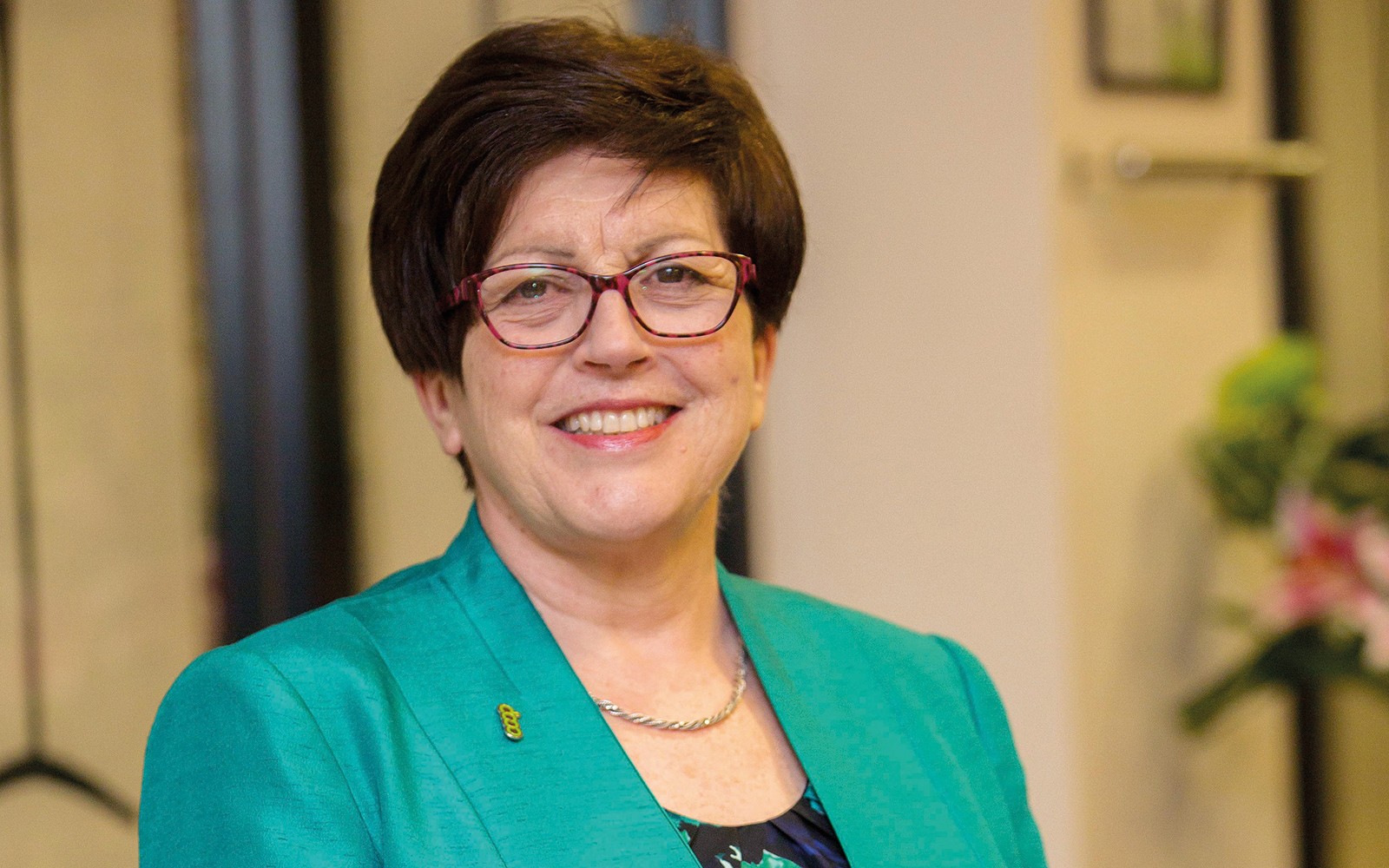A stock exchange is a place where the public can buy and sell securities, such as shares of stock, bonds and other financial instruments. What if there was such an exchange specifically for co-operatives?
This was a question Stephen Gill began to think about last year: how can you grow the number of co-ops, while at the same time putting the ability to generate wealth into the hands of those who need it most?
The solution? Coop Exchange, a mobile app that allows anyone in the world to invest in co-ops.
A co-operative background
The team behind Coop Exchange know co-ops. Stephen Gill, CEO and CTO, started out at Scotmid Co-operative, and has been running a successful software business for almost 20 years. VME is in the process of converting to a multistakeholder co-operative. Its chair is Ben Reid, who was the CEO of Midcounties Co-op for over 10 years, and now sits on the board of the International Cooperative Alliance (ICA).
Coop Exchange seeks to solve two problems that many co-operatives face, says Stephen.

“Firstly, it’s hard for small co-ops to operate on a loss while developing innovations. Uber lost $891m in 2018. It can do this by covering the losses with venture capital investment. It’s harder for a worker co-op of taxi drivers to do the same: because everyone owns one share, equity investment to cover the losses is trickier.
“Secondly, the withdrawable share capital doesn’t appreciate, which can make founders who put a lot of initial effort into a company reluctant to adopt the co-op model, as it makes repaying sweat equity harder.”
A co-operative future
Stephen believes the solution to both of these problems is to enable co-operatives to issue a new type of share: investor shares. These would give a dividend of the profits, but no voting rights. The members have full and democratic ownership, but they can accept investment from anyone across the world and reward the investors.
The idea for this comes from the FairShares model, espoused by Rory Ridley-Duff at Sheffield Hallam University. FairShares is a philosophy for creating and sustaining networks of solidarity enterprises that share power and wealth among stakeholders. It integrates founders, producers, employees, customers, service users and investors – and it was this integration that inspired Stephen.
“Investor shares would make it easier for driver-owned co-op alternatives to Uber, for example, to operate on a loss while they grow, as they can shift the initial losses from workers to investors – and in exchange, give a share of the profits to them when they become profitable,” he says. These shares would be ‘traded’ on a ‘Coop Exchange’.
“We have spoken with co-operative lawyers to address questions raised and make sure the legislation around investor shares is watertight while remaining true to the co-operative principles. And other co-operatives are on board too, from worker co-ops and retail societies up to the ICA.”
Stephen gave a presentation on Coop Exchange to the ICA board in June. “Ben Reid introduced the agenda point and explained his role in the organisation,” he said, “and we demonstrated how Coop Exchange addresses many of the calls to action in the ICA’s own official documents.”
These documents include The Capital Conundrum for Co-operatives paper (2016) and the Survey of Co-operative Capital (2015), which said: “Non-voting shares can be used to preserve member democratic control while creating one or more classes of shares that can attract member or non-member investment.” The document went on to predict a mechanism similar to the one proposed by Coop Exchange: “With advancing technology, this can be easily provided through an online platform, creating a private electronic marketplace.”
The ICA’s Blueprint for a Co-operative Decade also highlights that co-ops need capital if they are to be established, grow and flourish – and that the end aim should be secure reliable co-operative capital while guaranteeing member control.
Stephen adds: “The ICA was very receptive to the idea, and agreed to create a working group to fully evaluate Coop Exchange under the ICA audit committee. We hope the audit committee will report back to the board at the General Assembly in Rwanda in October.”
Coop Exchange is itself a co-operative, based in Malta, and takes a small commission from investments above a certain threshold. To put Coop Exchange into practice, it has built an app. “Unlike any other co-operative financial institution, the app allows participation across time and space, from everywhere in the world at any time of the day, with a few clicks,” says Stephen.
“At the end of the day, we want an economic system where stakeholders can democratically hold accountable those who make decisions affecting them.
“We want to turn business from a force that suppresses democracy into a force that supports it, and we want the internet to be a space where users own the value they create, instead of being products that are sold. Our mission is to beat the 1% at their own game and do so in a way that changes the rules by making it fair for the 99%.”
Q&A: Dame Pauline Green
former MEP, president of the ICA, and secretary general of Co-operatives UK
How did you get involved in Coop Exchange?
I met Stephen in Malta – I’m a Maltese citizen and was already doing work with the Maltese co-op movement. One of the key issues during my presidency of the ICA was how to secure capital for existing, and start up co-ops, so Coop Exchange was immediately of interest to me. I am now on the board.

Why do you believe in this project?
Because for both new and existing co-operatives, finding the capital to grow is hard. Managing the tension between finding investors and ensuring the rights of member-owners aren’t eroded is a balance, and many co-ops around the world have foundered when they haven’t got that balance right. All co-ops struggle with this. How do you make sure someone putting money into a co-op doesn’t remove members’ right to decide? I firmly believe the development of Coop Exchange is a significant opportunity to find a way to ease that tension.
What are the challenges in making it a reality?
The challenge is making sure the co-op movement knows what Coop Exchange is and understands it. I’m really delighted to have a chance to help with that.
The issue of capital will always be a dilemma, but Coop Exchange addresses this. It’s a modern, clever, innovative, digital approach that keeps co-op ownership in the hands of members while allowing a co-op itself to raise capital and grow. It’s a great project and product and Stephen himself is committed and determined. He believes he can make a contribution to co-op growth – and to poverty reduction too, as it is also a way of supporting working people to invest small amounts in co-ops, giving them a return that will enable them to grow their own incomes.
- Find out more at www.coop.exchange